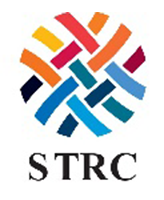Fabian Walda is a textile engineer by profession with over a decade of experience in sustainability standard setting at Bluesign, where he contributed to building tools and criteria for safer and more sustainable chemistry and responsible industries. He recently joined the RUDOLF Group to advance sustainability from a corporate and implementation-driven perspective.
Author: STRC Admin
ECODESIGN – A Science-Based Approach
While circularity has become a dominant framework in the textile industry it often falls short in practice. A promise to close loops, reduce waste, and reconcile production with environmental limits. It offers the comforting idea that consumption can continue, just differently. Yet after years as a global megatrend, the gap between vision and reality remains wide. Action has lagged, and impact has fallen short.
Ben Mead
Ben Mead serves as the Managing Director of Hohenstein Institute America. In this role, he is the company’s liaison with industry collaborations, government agencies and trade associations, while leading a team spread over North and Latin America. He also oversees OEKO-TEX® responsibilities for the U.S.
Dr. Gunther Duschek
Dr. Gunther Duschek is the Managing Director as the CTOO of RUDOLF, which has a global workforce of 2,000 employees across 50 locations. With over 25 years of experience in the
field of R&D in textile auxiliaries, Dr. Duschek has played a pivotal role in propelling innovation within the textile industry. He holds a diploma in chemistry and a doctorate in natural sciences,
having completed his studies at the University of Ulm and his doctoral research on fluorocarbons at Clariant, Basel.
Thomas Braun
Overseeing and running Swisstex California as Dyehouse manager and then as Technical Director gave me for 25 years an unparallel volume of experience in efficient and sustainable textile manufacturing, digital color management and the development of advanced dyeing processes.
State of Textile Recycling: Challenges, Opportunities, and the Path Forward
Textile waste is a growing challenge, yet its recyclability remains limited due to complex material compositions, market constraints, and infrastructure gaps. In this session, we’ll examine the scale of the challenge, where textile waste goes once discarded, and the critical distinction between discard and disposal.
Updates on Recycling and Repurposing Cotton Textile Waste: Cotton to Sugar Project
This presentation will review and update the efforts by Cotton Incorporated to obtain glucose from cotton textile waste. Cotton fiber is nearly pure cellulose, a natural polymer composed of many glucose units. Research has shown that glucose can be readily obtained from cotton textile waste through enzymatic hydrolysis.
Custom Circularity Models and Understanding the Process
In this presentation, “Custom Circularity Models and Understanding the Process,” we will explore the importance of developing tailored circularity models within the textile industry. We will discuss the process of designing and implementing these custom solutions, highlighting the unique challenges and opportunities they present. By delving into the need for personalized approaches, I will explain why a one-size-fits-all solution can be difficult and how custom circularity models can drive greater sustainability, efficiency, and innovation in the industry.
Stephen Aber
Stephen Aber is the Marketing and Communications Manager at the Environmental Research & Education Foundation (EREF), one of the largest sources of private research funding in North America for sustainable materials management. He plays a key role in disseminating EREF’s research and facilitating dialogue within the industry.
Michele Wallace
For twenty-two years, Michele Wallace conducted textile chemistry research in the Product Development and Implementation division at Cotton Incorporated and participated in standards development to support the company’s research. During this time, Michele led the Analytical Services Lab and was the Chemical Safety Officer. She became engaged with life cycle assessment (LCA) in 2010 when Cotton Incorporated carried out the first global LCA of cotton fiber and fabric.
